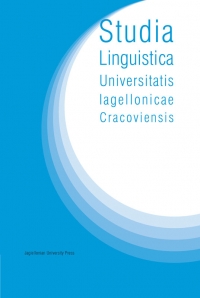Mexican slang ese “dude, buddy” and its Iberian Caló-Romani antecedents
Mexican slang ese “dude, buddy” and its Iberian Caló-Romani antecedents
Author(s): William SayersSubject(s): Language studies, Applied Linguistics, Syntax, Lexis, Semantics, Philology
Published by: Wydawnictwo Uniwersytetu Jagiellońskiego
Keywords: Caló; Romani; slang; pronouns;
Summary/Abstract: Use of the demonstrative pronoun ese “that, that man” in familiar North American Spanish speech is traced to Andalusian Spanish and the influence of Caló, the cryptolect of the Iberian Roma. In early para-Romani, the inherited four-term deictic system (situational/ contextual, general/specific) yields to the very differently organized Romance three-part paradigm (este, ese, aquel), as, concurrently, Caló locative adverbs often replace personal pronouns. Yet, even after the wholesale replacement of Caló demonstratives by Spanish forms, the function of an earlier deictic vocative phrasing is maintained in ese, to be understood as you, right there, my conversational partner.
Journal: Studia Linguistica Universitatis Iagellonicae Cracoviensis
- Issue Year: 138/2021
- Issue No: 3
- Page Range: 135-143
- Page Count: 9
- Language: English

